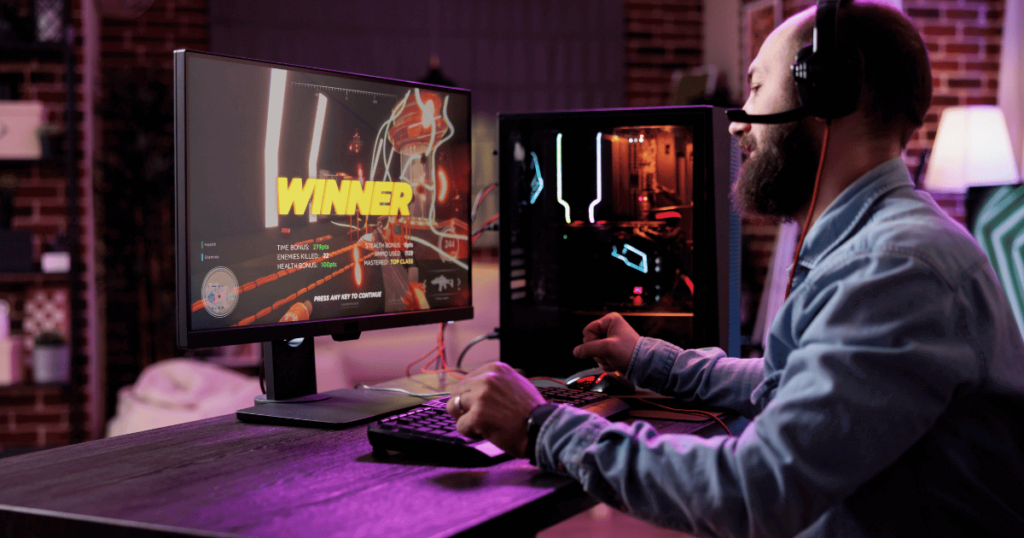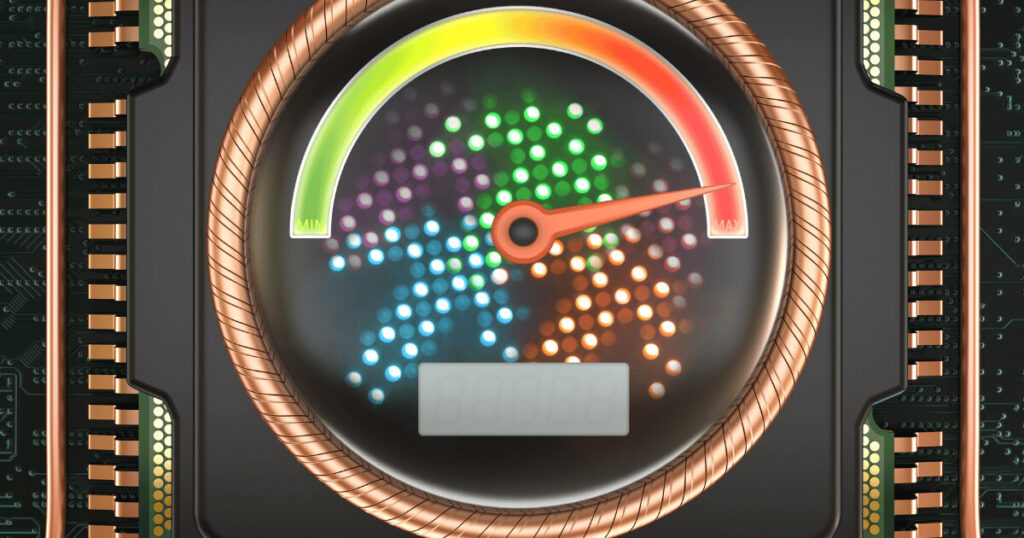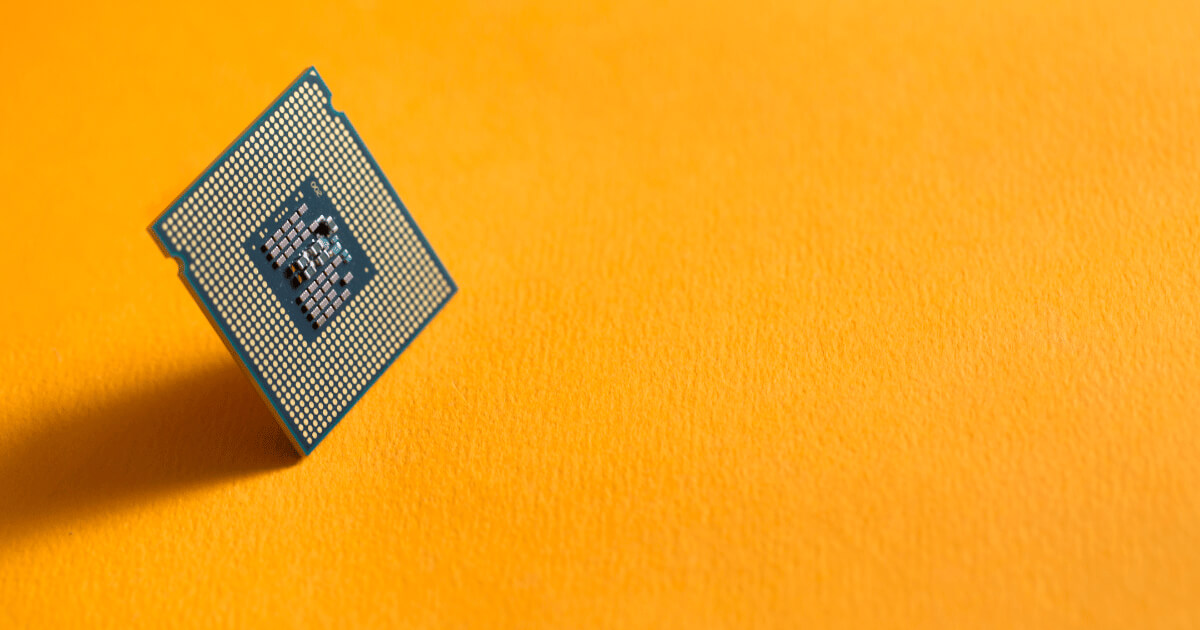Have you ever wondered why some games make your PC’s CPU usage go through the roof? You may have noticed that your computer gets hot, noisy, or slow when you play certain games, and you may have wondered what causes this problem.
In this article, we will explore the main factors that affect your CPU usage while gaming, and we will give you some tips and tricks to improve your gaming performance and experience. Read on to find out more!
Key Takeaways
- Complex game physics and high frame rate settings increase CPU usage by demanding more detailed calculations and faster processing of game data, respectively.
- Multiplayer gaming adds to CPU load through additional tasks like data synchronization and running anti-cheat systems, especially in large-scale online environments.
- Poor game optimization can lead to unnecessarily high CPU usage, even in scenarios with minimal on-screen activity.
Complex Game Physics
In many modern games, the magic happens behind the scenes with what’s called “game physics.” This is all about making the game world feel as real as possible.
For example, when things fall, crash, or explode, the game uses complex calculations to make those actions look and feel lifelike. But here’s the catch: these calculations demand a lot from your computer’s CPU, the part that acts as the brain of your computer.
The more detailed and complex a game’s physics are, the harder the CPU has to work. This is why games with top-notch graphics and realistic physics can make your CPU usage shoot up, as it’s putting in extra effort to keep everything running smoothly.
Frame Rate Settings

Frame rate settings are another factor that can affect your CPU usage while gaming. The higher the frame rate, the smoother and more responsive the game feels.
However, a higher frame rate also means that your CPU has to process more information and send more instructions to your graphics card (GPU) every second. This can increase the CPU load and cause high CPU usage, especially if your CPU is not powerful enough to handle the game’s demands.
One way to mitigate this issue is by capping your FPS to a lower value. This will reduce the CPU load and prevent unnecessary spikes in CPU usage. Nevertheless, capping your FPS will also result in higher input lag.
Multiplayer Gaming Demands
Another aspect of gaming that can impact your CPU usage is multiplayer gaming. When you play online with other players, your CPU has to perform extra work to ensure a smooth and synchronized gaming experience.
For instance, your CPU has to send and receive data over the internet, process voice chat, and run anti-cheat systems. These tasks can be CPU-intensive, especially if the game involves a lot of players, a large game world, or a high degree of interactivity.
A good example of CPU-demanding multiplayer games is MMORPGs, which require your CPU to constantly update and render the actions and positions of thousands of players and NPCs in a vast and dynamic world.
Hardware Constraints

While CPUs often last longer before needing an upgrade compared to GPUs, they’re not immune to becoming outdated. For example, a few years back, having a 4-core CPU was considered adequate for gaming. However, as games evolve, becoming more complex and demanding, these once-capable CPUs struggle to keep up.
Furthermore, most modern games are designed to leverage multiple CPU cores with hyperthreading. This advancement allows for better performance and thus, smoother gameplay. However, this also means higher CPU usage, as games distribute their processing load across several cores.
Game Optimization Issues
Let’s be honest, not every game treats your CPU fairly. Sometimes, the high CPU usage results more from poor game optimization than anything else. That’s because not all game developers invest enough time and resources in optimizing their games, leading to performance issues and bugs.
For example, there are instances where a game might push your CPU to its limits, even in simple scenarios where you wouldn’t expect it—like standing alone in an empty room.
Good optimization means that a game adjusts its use of CPU resources based on what’s happening in the game. However, when optimization isn’t up to par, it can lead to high CPU usage without a good reason.
Conclusion
We hope that this article has helped you understand some of the factors that can cause high CPU usage while gaming, and how to deal with them.
We would love to hear from you. What method did you use to lower your CPU usage? Did it work for you? Also, did you notice your CPU temperature fluctuating while gaming? Please share your thoughts and feedback in the comments below.
We're an affiliate
We hope you love the products we recommend! Just so you know, gameraround.com is a participant in the Amazon Services LLC Associates Program, an affiliate advertising program designed to provide a means for sites to earn advertising fees by linking to Amazon.com.

